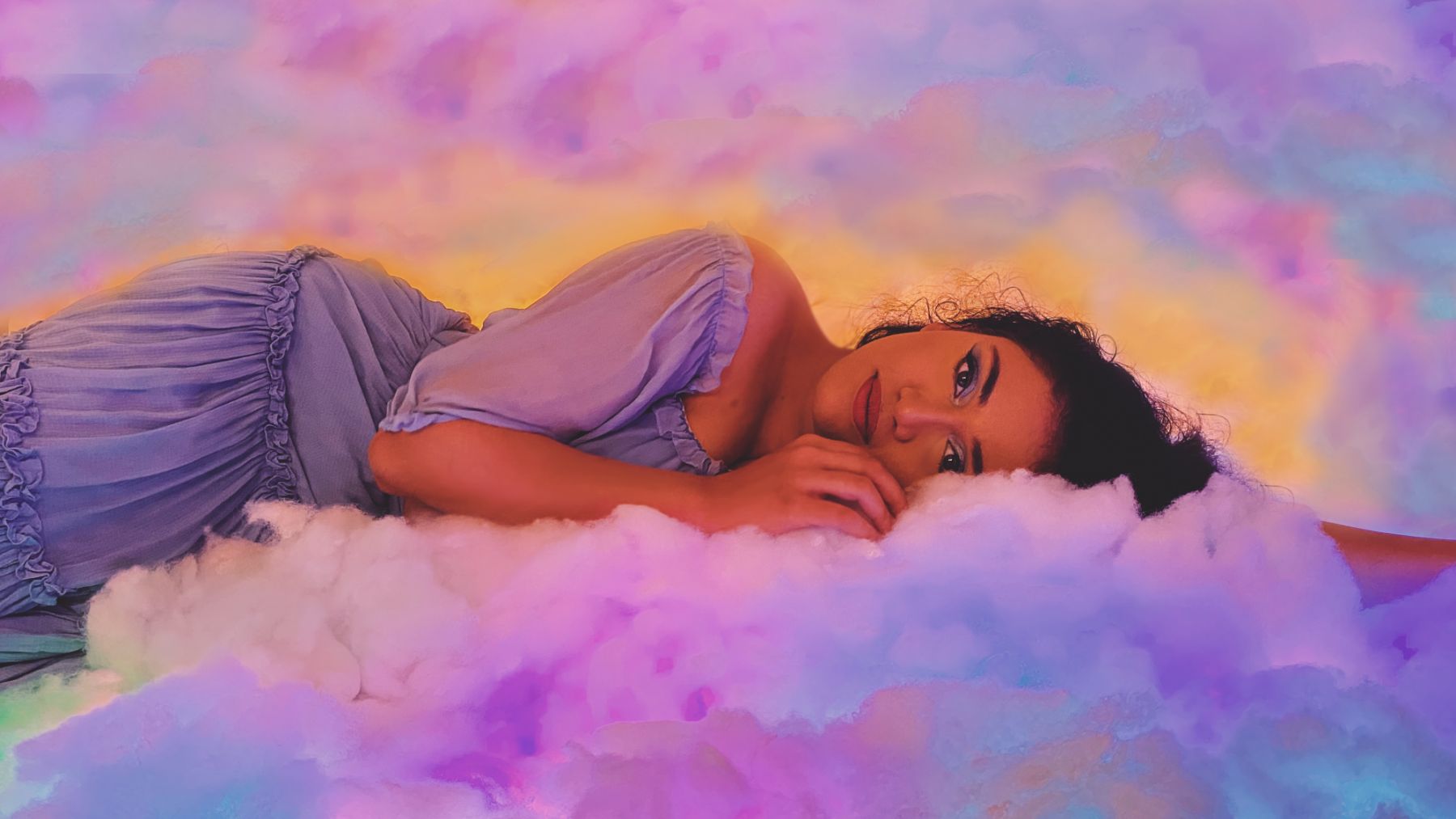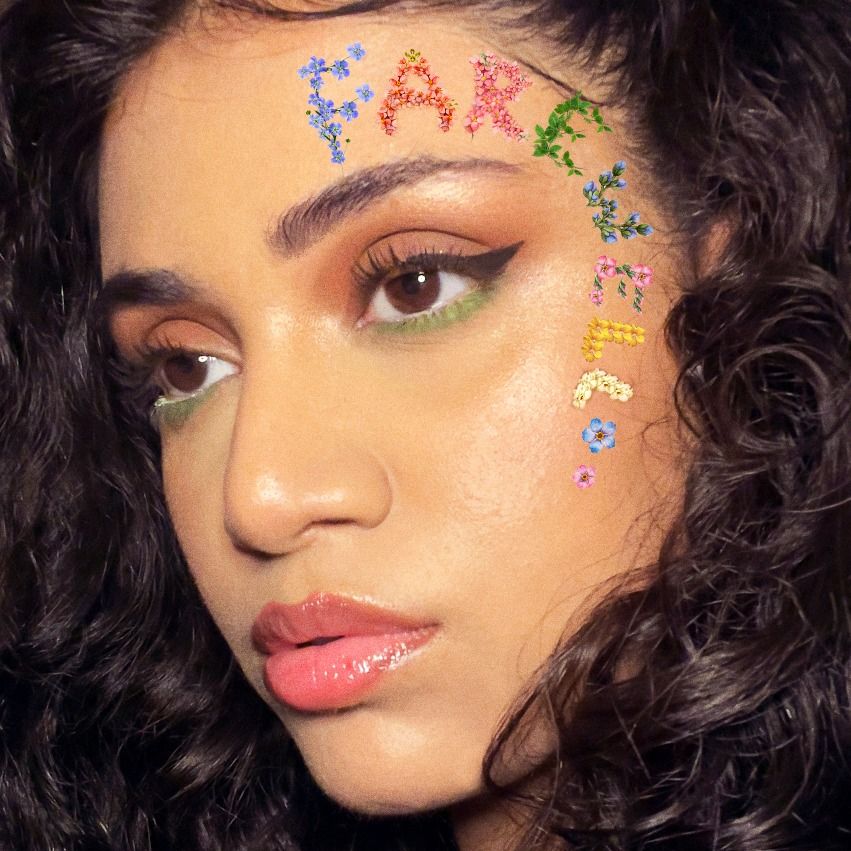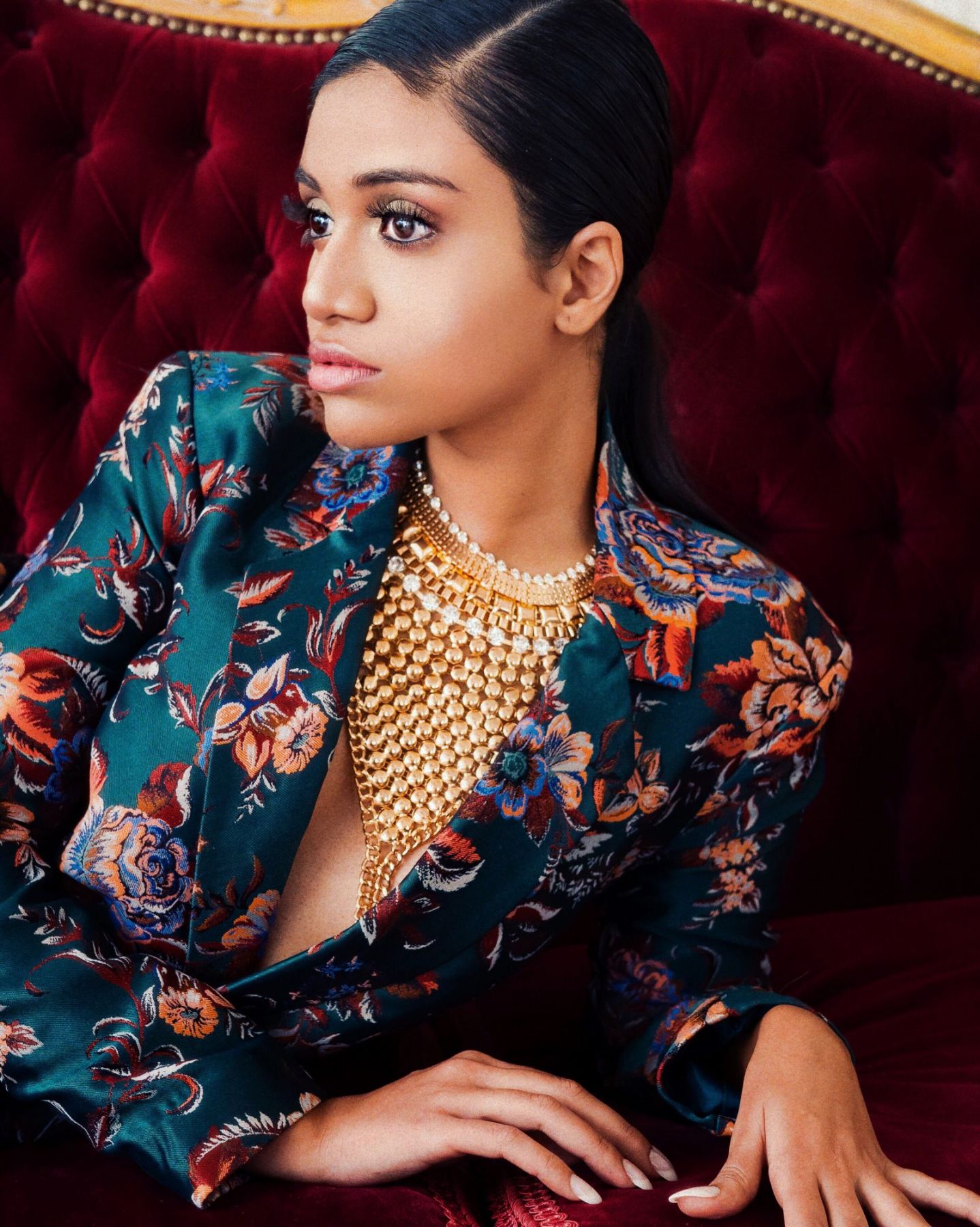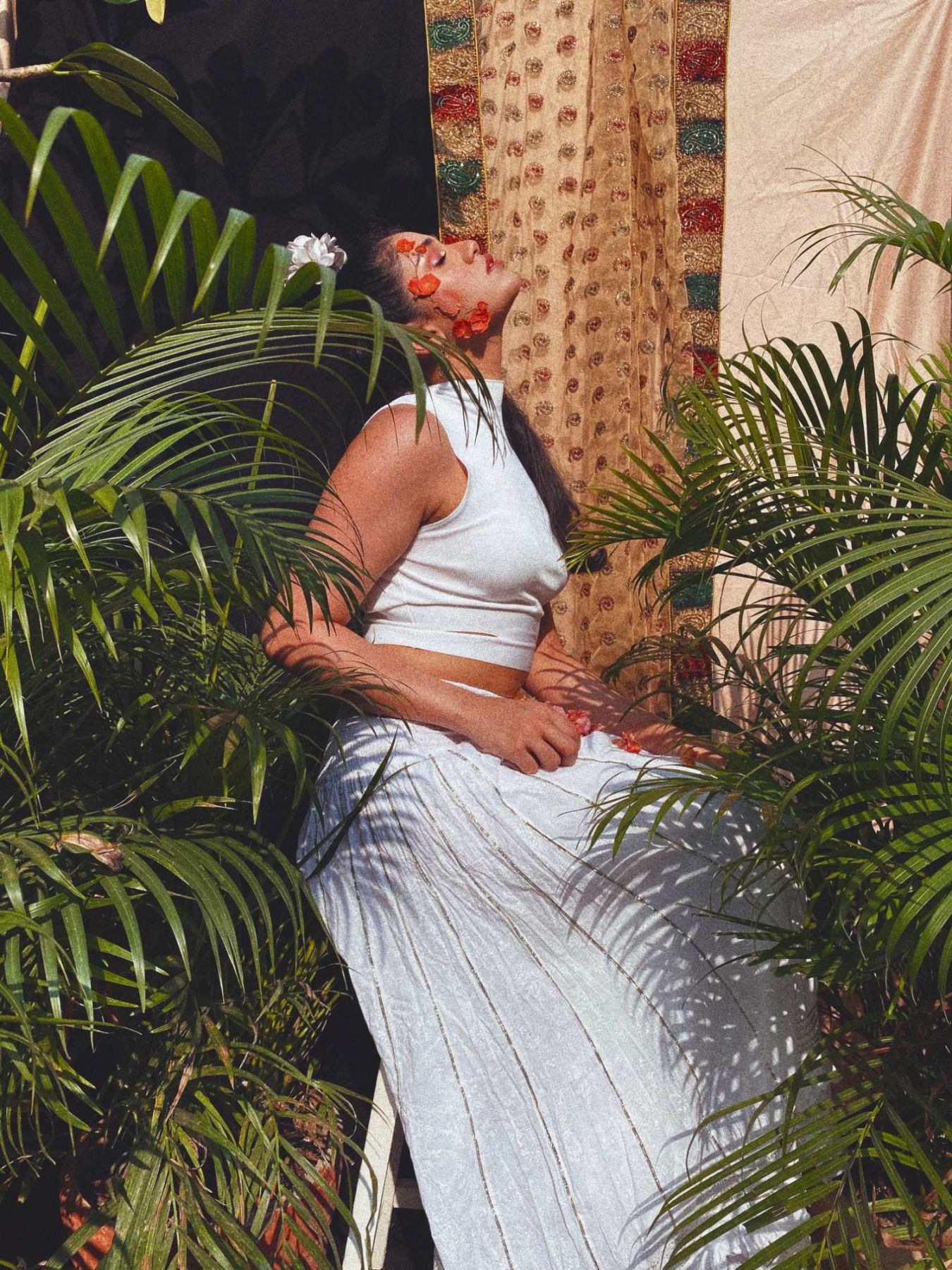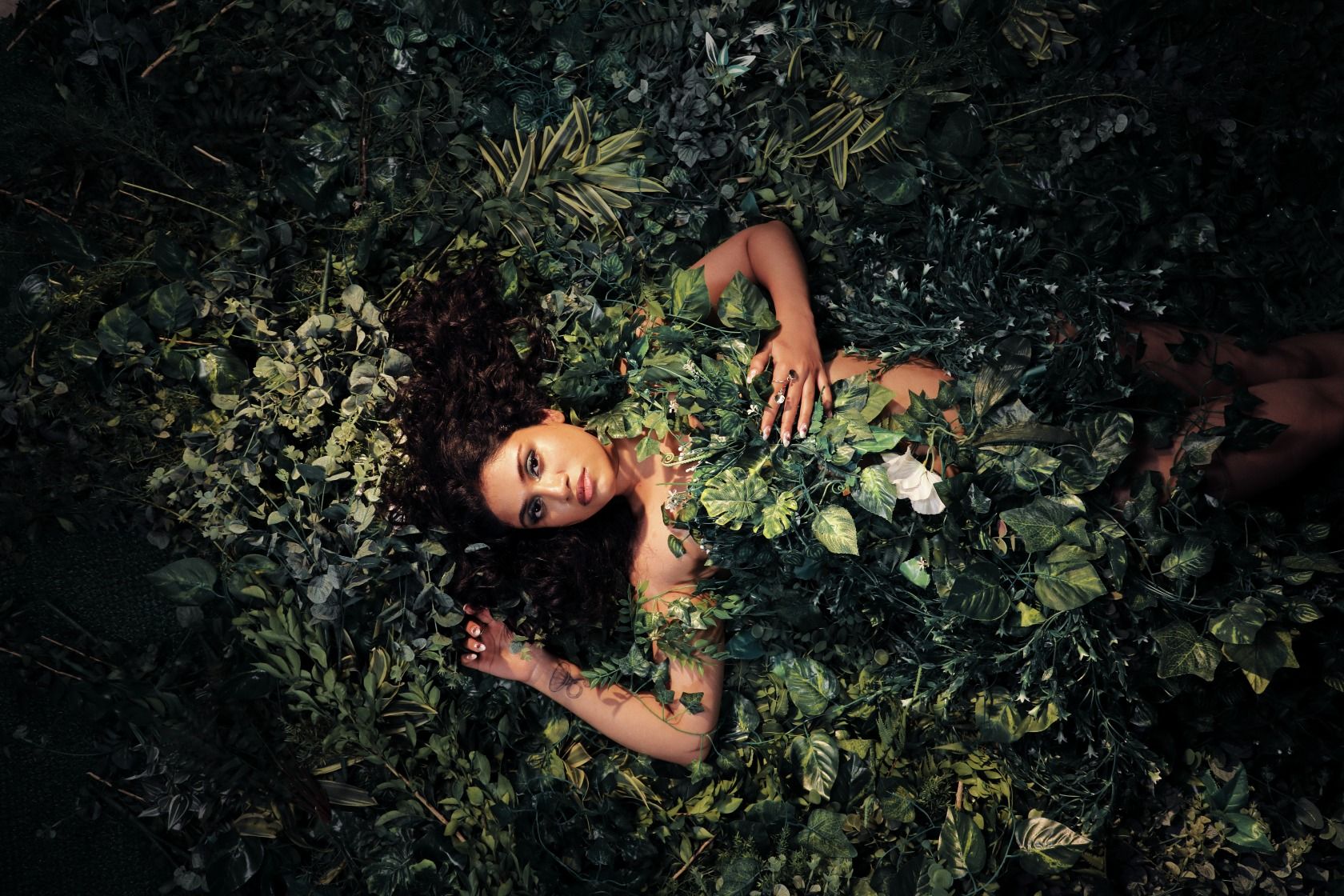The Mumbai born, Los Angeles-based singer has created her own genre, “Goddess Pop” and is slowly breaking into the indie music scene—if she hasn’t already
It’s not every day you come across an artist that’s bold enough to name her own genre. But Nikitaa is. The Mumbai-bred, Los Angeles-based singer is slowly making waves in the indie music scene by blending ethereal pop and R&B, infusing her own colour and taking elements from her Indian roots to create her own unique sound which she calls, “Goddess Pop”.
The singer-songwriter has spent the past few years honing her craft in Los Angeles and has since put out a number of singles—each with a refreshing mix of sounds which eventually earned her a loyal following and millions of streams across music platforms. But the transnational artist is more than just a singer, she’s also on a mission to challenge (and shatter stereotypes) and break down barriers through her music—especially as a female artist of colour in the industry.
In this exclusive interview with Tatler ahead of the release of her new song, Farewell, Nikitaa takes us through her humble beginnings, how she pays homage to her culture, the challenges of being a South Asian singer in the indie music scene and why we should be excited about her new song.
See also: Exclusive: South Korean Singer Seori on Her New Song, ‘Dive With You’ Featuring Day6’s eaJ

Can you tell us how you got into music?
I was always interested in music for as far back in my life as I can remember. My summers were spent singing along to the cassettes my mum would pop into the stereo in her room, and I started training when I was four—at the same time, I began training as a dancer. I took keyboard lessons and learned basic western classical theory as well as Indian classical vocal lessons and theory. Every memory I’ve ever had is coloured, so to speak, with a song or an album. But I decided to pursue music as a career at the age of 19 and went to Musicians Institute in Los Angeles nearly two years later because of this decision.
Were your parents supportive of you getting into music?
Now, absolutely and unequivocally. But this wasn’t always the case. My mother’s family has a long history of musical talent and passion. This is an ancestral gift for me. But none of them were permitted to pursue it as a career. Notably, my Nani (maternal grandmother) studied under several Ustaads (maestros) in her hometown of Banaras (Varanasi) but was always prevented from pursuing it because of many reasons—one of them being that she was a woman.
I think my parents were initially caught between wanting to see me pursue something that truly fulfilled me and brought me joy, and wanting to protect me based on the experiences of their family members. But, eventually, their desire to support me overcame; my mother in particular found catharsis in the idea that I get to fulfil not only my own purpose but my Nani’s as well. And I feel as if I carry her with me whenever I sing.
You’re born and raised in Mumbai, why did you decide to go to LA? How was the journey moving from one part of the world to another?
I always knew I wanted to do something with contemporary English music, and I chose LA after speaking with my dear friend and fellow artist, Natania Lalwani. She was a Musicians Institute alum and recommended the school to me after I shared some of my early songwriting with her. I’ve always felt like I’ve been between worlds—the one I grew up in, in India, and the one that influenced me vis a vis all the music I was listening to. Between that and the fact that I’d visited family in California before, moving to LA wasn’t as much of a culture shock as I’d prepared myself for. I’ve also personally always loved venturing out on my own and so as difficult as it was to be away from family, it was also something that felt right down to my very bones.
One thing I will note though is that moving so far away really had me reflecting a lot on my identity as a brown woman that carries a certain amount of privilege. From the day I started school in LA, I was often told I looked racially ambiguous, and I was fetishised by others, while also facing alienation from my fellow Indian students—all for just being me. It forced me to find and stand strong in the integrity and truth of who I am, and it also helped me recognise that though I carried privilege (being light-skinned, from Savarna, Hindu and from upper-middle class) it would be what I did with that privilege that would make or break me and the people around me. Also, I could let all that fetishisation and alienation bring me down, or I could keep it pushing and keep working on me. I chose the latter. And I believe it shows in everything I do.
See also: Hong Kong Rapper Luna Is A Bep on Performing With Clockenflap and Her Music Journey

